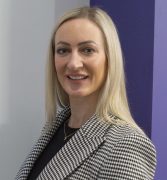The inquest into the death of Gregory Rewkowski concluded on 20th December 2018. HM Senior Coroner for Manchester North determined that Article 2 was engaged in Gregory’s inquest and that the inquest would be heard with a jury.
Mr Rewkowski was found hanging at his home on Sunday 29th October 2017 three days after being discharged from the Hollingworth Ward, Birch Hill Hospital where he had been an in-patient for 6 weeks. He was in hospital under section 2 of the Mental Health Act 1983 after being found by chance trying to hang himself previously.
He was discharged from the ward on the 26th October 2017.
On the morning of 27th October 2017 the ward staff (BH hospital) learned that Gregory had posted messages on social media about last goodbyes. Later that afternoon text message were seen which stated he did not wish to live with depression, and early evening that he was lonely and that he wished he had remained in hospital.
The ward staff were concerned about Gregory’s safety and determined that he should be seen, raising a concern for welfare
Over a period of some 36 hours before his death no face to face contact was made with Gregory, which the mental health staff had deemed was required for a proper assessment. This was despite calls to the Police and NWAS.
The Coroner investigated whether there were any failings or criticism of the actions taken and communication between agencies; the Police, North West Ambulance Service and Birch Hill Hospital, and whether or not there were adequate provisions in place to protect an individual such as Gregory, a recently discharged mental health patient.
After hearing the evidence the Jury reached the following conclusion:
“On the balance of probabilities the deceased died as a result of hanging at his home address. It is more likely than not he intended to end his life. Having listened to the evidence the jury determined that Pennine Care NHS Trust should have informed the next of kin of the deceased’s discharge from hospital and information about his social media posts. The Jury determined the breakdown in communications with Pennine Care NHS Trust, Greater Manchester Police and North West Ambulance Service resulted in the deceased not being contacted until 28th October 2017. The lack of knowledge of procedures and policies of all services led to a delay in acting in a timely and appropriate manner. It is the jury’s findings these failings did not make any contribution to the death.”
HM Senior Coroner Ms Kearsley chose to write a report to prevent future deaths to the Chief Constable of Greater Manchester Police Ian Hopkins, the Chief Executive of Pennine Care NHS Trust (PCT), the Chief Executive North West Ambulance Service (NWAS) and Jon Rouse the Chief Officer for the Health and Social Care Partnership and Chair of the Health & Justice Board. She concluded that the inquest had revealed matters giving rise to concern and a real risk that future deaths will occur unless action is taken.
In summary the concerns raised were that;
-
There was a lack of communication and escalation of concerns amongst nurses and senior staff at the hospital and none of the ward staff were aware of the restrictions on ward telephones which prohibit 111 calls from being made;
-
In cases involving the engagement of Article 2 ECHR there is a duty on agencies to investigate the circumstances surrounding somebody’s death in order to learn lessons. There was little investigation conducted by the NWAS following this death;
-
There appears to be a significant difference between the legal position and practical reality of how police deal with people who are taken from their home under Section 136 if they are called to a home address and this inconsistency is causing confusion amongst other agencies;
-
There is a distinct lack of understanding across all 3 agencies of each agencies roles and responsibilities, systems of working and current practices in relation to concerns for welfare involving risk to life (not immediate i.e someone in the process of harming themselves);
-
There is no Mental Health Community Response team available to deal with mental health issues out of hours and conduct face to face meetings. The only out of hours service is in A&E which would necessitate someone attending there.
For legal advice on inquests or legal representation during an inquest, please contact Farleys Solicitors on 0845 287 0939 or contact us by email.









